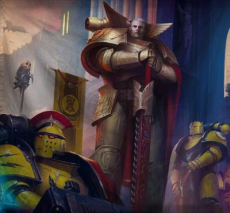1
Government
The LandOfTheKingsPeoplean government is a fairly straight-forward structure.Ministries
The heart of the government is in the Ministries. There are two Ministries: The Ministry of Internal Affairs and the Ministry of External Affairs. Within each Ministry is a Sub-Ministry, with each major concern of governance and oversight (Education, Environmental Practices, Cultural Control, etc.) having its own dedicated Sub-Ministry. The Sub-Ministries have minimal overlap between Internal Affairs and External Affairs.
Each Ministry and Sub-Ministry has a presiding Minister, with Sub-Ministers for each Sector. Ministers are often appointed to their position for the rest of their life, though in rare instances they have been allowed to retire. Sub-Ministers are appointed at the discretion of their Minister.
The Sub-Ministries are responsible for creating legislation for the country, which is voted upon internally and then submitted to the overarching Ministry, which then sends the legislation to the King for final approval. The Court of Laws is a body of the Ministries called upon in moments of trouble that allows for the entirety of both Ministries to debate proposed legislation and propose legislation under the jurisdiction of any Sub-Ministry. The Court of Laws can only be summoned by the King.
The King
At the head of the country is the King, Notstalan H. Faust. The immortal ruler of the Kingdom, his common responsibilities involve approving legislation, appointing Ministers, and presiding over the Court of Laws. The King holds absolute power and authority within the Kingdom, and it is within his ability to overstep any boundaries and commit any actions he deems necessary for the safety and stability of the country. This is not often exercised.
The King has an advisory council named the Council of Six, which is made up of six individuals most highly regarded by the King. Membership within the Council of Six is not made public in either life or death, and individuals that attempt to discover the identities of council members are met with execution, regardless of any status.











